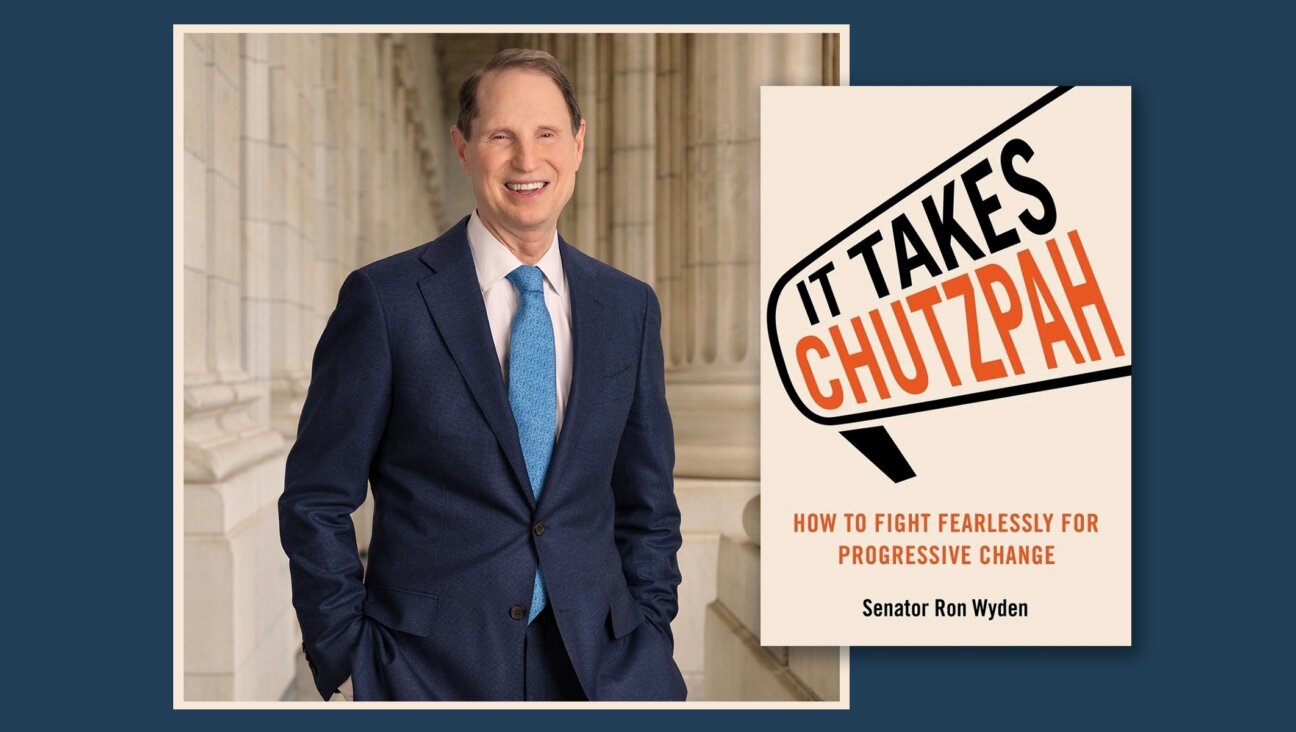Laws of the Kingdom
Leadership in the public square springs naturally from the Jewish conception of community and good citizenship. Consider the prophet Jeremiah’s injunction to the Babylonian exiles to “seek the peace of the city to which I have exiled you and pray to the Lord in its behalf; for in the peace thereof you shall have peace.” Or the talmudic maxim “The law of the kingdom is the law,” which provides a Jewish basis for respecting and valuing secular authority.
In America, this ancient Jewish political tradition has found its most complete expression. With the exception of Israel, no other nation has so fully embraced the talents and contributions of Jews, and no other nation has afforded the Jewish people greater opportunities to demonstrate our commitment to public service. Jews have held almost every major elected office in the United States. Today, although they constitute less than 2% of the American population, fully 11% of the Senate and 6% of the House of Representatives is Jewish. The record is equally impressive for high-appointed offices. In Bill Clinton’s second term, to cite just one example, three of the four top Cabinet officers were either Jewish or had Jewish parents.
The statistics are truly remarkable, but however illustrative of the opportunities available to Jews, they tell us little about the qualitative contributions of our community to the story of America. The great question and the moral test of our 350-year experience in the New World is this: Has Jewish leadership made America a different and better place?
This is a difficult question to answer, because the Jewish community is far from monolithic on matters of public policy. Jews can be found on every side of almost every issue — school vouchers, faith-based initiatives, affirmative action, welfare reform and the war in Iraq, to name a few. If you reach further back across the decades, the contrasts among different Jewish leaders appear even more striking.
Many of us today might wish to forget the first Jewish Senator, David Levy Yulee of Florida. Elected in 1845, Yulee had worked for Florida’s admission into the Union, and was rewarded with one of its first seats in the Senate. But according to Milton Krainin’s account of Yulee’s life, he adamantly defended slavery, and eventually rejected his Jewish roots and embraced Christianity. And how many of us remember former U.S. senator and Confederate Cabinet member Judah Benjamin of Louisiana, also a slave owner and a committed defender of the antebellum South?
Indeed, it was not until the immigrant incident of the late 19th century, which brought its direct experience with persecution and social inequity, that the model of the modern Jewish American political leader began to form.
For the Jews departing Germany, Russia, Eastern Europe and elsewhere, personal security in their new country was tenuous, especially in the atmosphere of rampant antisemitism that led to the lynching of Leo Frank in Georgia in 1915 and to the creation of the Anti-Defamation League. Jewish-Americans began to identify common interests that bound them to other historically persecuted minorities in the United States. Our economic experience was even harder: rampant poverty, overcrowding and the desperate striving of immigrants to scratch from the dust a better life for children and grandchildren.
From these crucibles emerged some of the most influential Jewish politicians and political activists in American history.
The sad, exclusionary memory of Yulee and Benjamin was replaced in the public mind with Emma Lazarus, Jacob Javits and Bella Abzug. And the stain of the Confederacy was erased by the heroism of Jewish civil rights leaders like Abraham Joshua Heschel, who marched hand in hand with the Rev. Martin Luther King Jr. in Selma, Ala. This 20th-century post-immigration model defines Jewish leadership in public life today and represents the enduring Jewish contribution to social justice and progress in America. There are so many powerful examples to which we can point with great pride.
Consider a few:
• While not an elected official, Samuel Gompers, the first president of the American Federation of Labor, was perhaps one of the most influential Jewish politicians of his or any other day. Gompers was regarded as a master strategist who always kept his eye on the task at hand: securing and maintaining more rights for workers. In cultivating friends of the labor movement in various branches of government and across political parties, he recognized a truism that often discourages those who dedicate their lives to one specific cause: While the plight of the worker was his top priority, it was not everyone’s, and he needed merely to secure a few champions to lead a legion of supporters in carrying out his policy objectives.
• Henry Morgenthau Jr. was a political figure equal in stature and lasting influence to Gompers, even though his background was quite different. As secretary of the Treasury under Franklin Delano Roosevelt, he raised record amounts to bankroll Depression-era government programs, and helped finance America’s entry into World War II. His expertise did not end with finance ; he also was instrumental in the establishment of the War Refugee Board, which assumed responsibility for rescuing European Jews late in World War II. He played a leading role in the establishment of the Bretton Woods Financial Institutions — the International Bank for Reconstruction and Development (later the World Bank) and the International Monetary Fund. After his retirement from American public service, he served as chairman of the United Jewish Appeal during the era of the establishment of the State of Israel, and helped finance the young nation in the early 1950s.
• Today, there is no better example of a Jewish statesman than Senator Joseph Lieberman, the first Jew to run (and, some would argue, to win) on a national political ticket. Informed by a commitment to Jewish values about which he is particularly candid, Lieberman’s long history of public service includes registering black voters in Mississippi in the 1960s. He is now one of the Senate’s foremost authorities on issues of national security, and a man widely admired by leaders and citizens at both ends of the political spectrum.
If the immigrant experience of 100 years ago gave Jewish political leadership its distinct character, then the birth of the State of Israel midcentury gave us a new, galvanizing, common priority. The Balfour Declaration, the British Mandate and, especially, the Holocaust pushed the issue of a safe and secure Jewish homeland to the front burner for Jews everywhere and, here in America, Jewish legislative leaders made the American-Israeli partnership a consistent, first-rank priority, and have helped to cement a pro-Israel consensus that stretches across religious and political lines.
By most standards, our efforts have been a great success. The alliance between the United States and Israel is strong, even in times of great challenge. Most Americans have learned to admire the strength, self-reliance and democratic principles of the Israeli people.
Yet there also has been a different and more troubling challenge with which Jewish Americans have had to contend as a result: the ugly and baseless charge of dual loyalty. For some of our fellow citizens, the birth of Israel invited questions not only about what Jewish public figures believed, but also about where they belonged. Antisemitism is nothing new, but in the post-1948 era we have had to defend our loyalty to, and rightful place in, this country in a way that never had been necessary before.
Is it possible to be equally committed to the enduring value of a Jewish state and to the best interests of the United States?
Can a public official on the national stage remain faithful to religious values while faithfully serving constituents and country?
These questions get at the very essence of what it means to be a Jew in American politics today. For me, the answer to each question is simple: a proud, unequivocal yes.
I am a product of a largely Jewish community near the Grand Concourse in the Bronx, N.Y. I raised my three children in a home guided and shaped by our Jewish heritage. I entered Congress in 1989, confident that my religious background and my commitment to public service complemented each other. The value that makes me a dedicated public servant and a committed Jew are one and the same — tikkun olam, the enduring admonition to heal the world.
Nearly 16 years after entering Congress, I have begun to see the engagement of a new generation of Jews in public life — a generation further removed from the immigrant experience and from Israel’s fragile, perilous beginnings. It’s a generation in which economic hardships, struggles against persecution and even the searing horror of the Holocaust are not the stuff of direct experience or memory, but rather of learned history.
Is there a galvanizing communal experience that will help shape the ideas and passions of the next generation of Jewish political leaders? Will they identify enough with their parents’ and grandparents’ experiences to ensure that underlying Jewish values continue to inform their priorities? Or will their own unique experience of American life send their activism in a different direction?
I believe that the fundamental tenet articulated in Leviticus, “Love thy neighbor as thyself,” will continue as an essential principle for Jews in public service. I am not afraid that the Yulees and Benjamins will win out over the Gompers, Morgenthaus and Liebermans of the world. And I have no doubt that the best and brightest of the Jewish community will continue to make great contributions to the strength of our great nation.
Nita M. Lowey is a congresswoman serving her eighth term. She represents parts of New York State’s Westchester and Rockland counties. Born in the Bronx, N.Y., she was first elected to the U.S. House of Representatives in 1988.
A message from our Publisher & CEO Rachel Fishman Feddersen

I hope you appreciated this article. Before you go, I’d like to ask you to please support the Forward’s award-winning, nonprofit journalism so that we can be prepared for whatever news 2025 brings.
At a time when other newsrooms are closing or cutting back, the Forward has removed its paywall and invested additional resources to report on the ground from Israel and around the U.S. on the impact of the war, rising antisemitism and polarized discourse.
Readers like you make it all possible. Support our work by becoming a Forward Member and connect with our journalism and your community.
— Rachel Fishman Feddersen, Publisher and CEO























